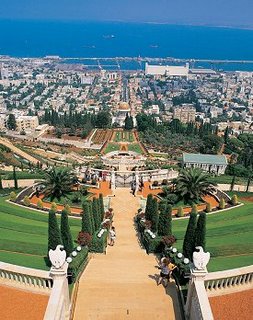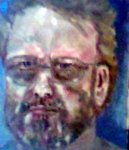First, I wish a happy 88th birthday to the urban economist I know best -- my dad. Happy birthday to Stan Czamanski.

I do not think that it is disputable that Haifa is a most beautiful city. It is a home to some 500,000. In addition to the Technion – Israel Institute of Technology and Haifa University, Haifa hosts a myriad of hi-tech research and development labs and centers. It is a mini silicon valley. Unfortunately it is physically divided into two zones separated by an industrial area that includes a refinery and a variety of petrochemical plants.
Despite its apparent competitive edge Haifa is losing young people to Tel Aviv, the primate city in the country. And so, like in so many cities there is an ongoing debate in Haifa how to change the rate and direction of the city's evolution.
Next week a newly formed national NGO of architects will hold a major conference in Haifa on the rejuvenation of central cities and downtowns. The focus of this conference will be on Haifa. In anticipation of the conference, a number of workshops are being conducted in the city with the participation of residents. The purpose if to identify planning actions that can be used as levers for rejuvenation.
There is something genuine in the notion that purposeful actions can change the city's dynamics. It seems reasonable to suppose that urban self-organization processes can be redirected, at least slightly, by changing some key parameters in the context within which self-organization processes take place. Before an effort like this can yield results there is a need to identify these key parameters.
Urban economic theory has not been productive in yielding useful information for such exercises. Indeed, it has been concerned with generating insights that are very broad and at a resolution that places it far from the trenches where action takes place. So, in the absence of science folk medicine will have to do.
On a similar note…
Yesterday I gave an invited lecture to all the city managers in Israel. The only other speaker at the workshop was the mayor of the host city. The mayor spoke first and explained that his role as an economic leader is to generate income for the city's fisc by overcoming the city's inability to raise sufficient income through the property tax.
I thought of a number of questions during the mayor's presentation. What is the source of the city's attractiveness? What activities in the city make it unique on a world scale? How is the city promoting itself? Are there clusters of economic activities that create a competitive advantage to the city? Is there a basis for the branding of this city?
It turns out that little thought has been devoted by the city managers in the room to these questions.


No comments:
Post a Comment